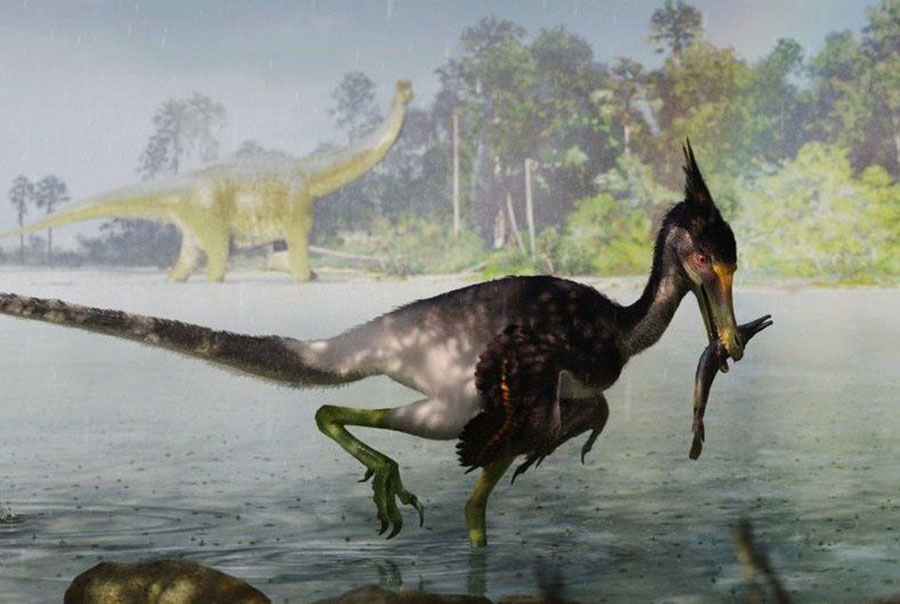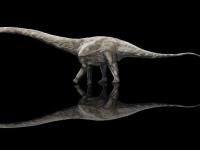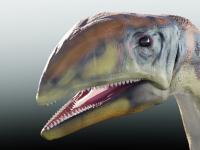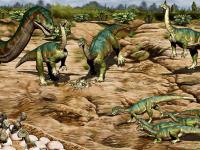Ypupiara lopai: New Feathered Dinosaur Species Revealed

Paleontologists in Brazil have unveiled a new species of unenlagiine dromaeosaurid dinosaur from the Maastrichtian age of the Cretaceous period.
The new dinosaur species walked the Earth between 72 and 66 million years ago (Late Cretaceous period).
Named Ypupiara lopai, it was a type of unenlagiine, a subfamily of feathered theropod dinosaurs in the family Dromaeosauridae.
“Dromaeosauridae are present in all continents during the Mesozoic Era,” said Arthur Brum from the Museu Nacional-Universidade Federal do Rio de Janeiro and his colleagues from Brazil.
“In Gondwanan landmasses, the Unenlagiinae lineage constitutes a diversification of dromaeosaurids, comprising five species recovered from Argentinean localities.”
“These dromaeosaurids are diagnosed by numerous teeth, which lack denticles and both carinae, and which have longitudinal grooves on the crown.”
“Among all unenlagiines, only two species — Buitreraptor gonzalezorum and Austroraptor cabazai — have cranial elements, including maxillary and dentary teeth, which limits the study of dental traits in the group.”
“The presence of Unenlagiinae specimens in Brazil is restricted to a single dorsal vertebra from the Campanian-Maastrichtian sequences of the Adamantina Formation.”
The specimen of Ypupiara lopai was recovered at Peiropolis, a rural district of Uberaba municipality, in the Brazilian state of Mina Gerais.
“Our study presents the first evidence of unenlagiines in the Maastrichtian Marilia Formation (Bauru Group, Brazil) and the second confirmed evidence of this clade in Brazil (as well as the first cranial remains referred to the Bauru Group in the country),” the paleontologists said.
The specimen they examined consists of a partial upper jaw bone with associated teeth and a portion of a lower jaw.
“Ypupiara lopai provides new information on the evolution of Gondwanan dromaeosaurids, and its preserved teeth provide new data to enable the assignment of isolated dromaeosaurid teeth from the Bauru Group,” they said.
The discovery is reported in a paper published in the journal Papers in Palaeontology.
_____
Arthur S. Brum et al. A New Unenlagiine (Theropoda, Dromaeosauridae) from the Upper Cretaceous of Brazil. Papers in Palaeontology, published online August 5, 2021; doi: 10.1002/spp2.1375
Source: www.sci-news.com/








